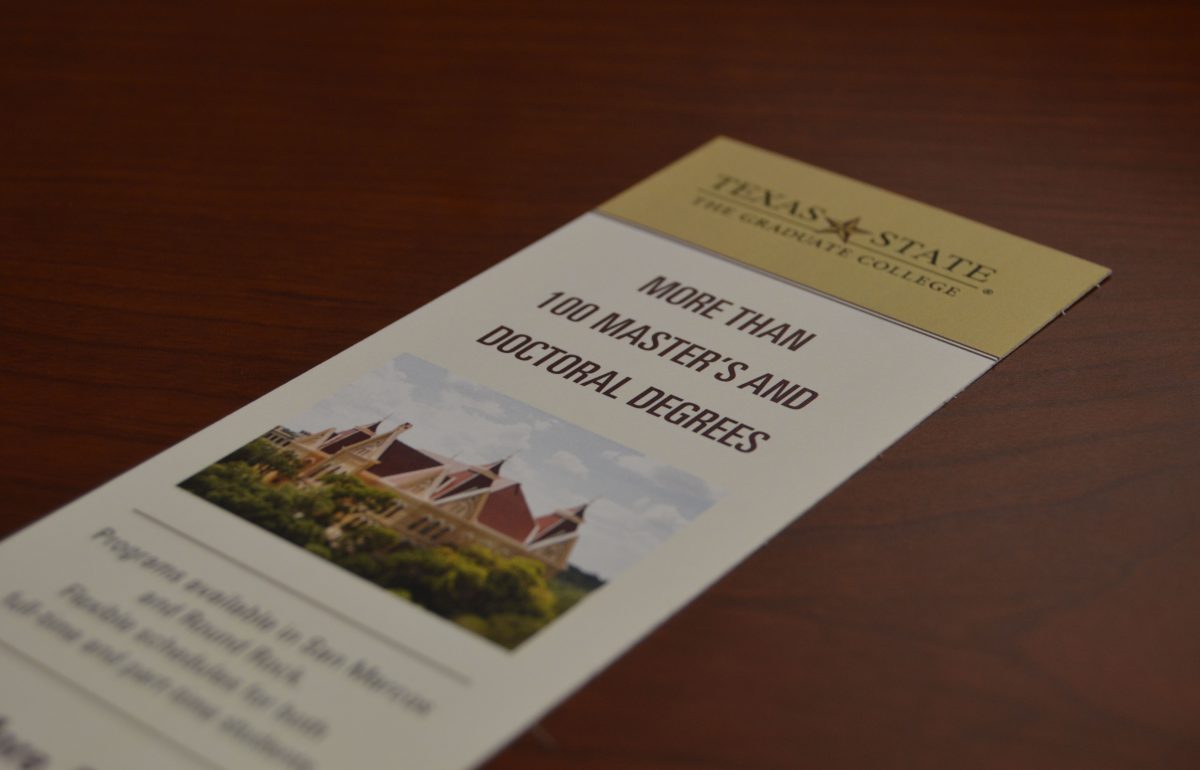Faculty members in the graduate college give helpful advice to undergraduate students on how to apply for graduate school.
GPA
Maureen Keeley, professor and director of graduate studies in communication studies, advises future graduate applicants to have at least a 3.0 GPA when applying to grad school. The higher a student’s GPA the easier it is for them to get accepted into the graduate college of their choosing.
“If they have a 3.5 or better they will have an easier time getting into whatever program they want,” Keeley said.
Although the GRE is not required for admission to the graduate college at Texas State, it can be beneficial to a student who has a GPA lower than a 3.0. Taking the GRE exam does not guarantee that a student will get accepted.
Personal Statement
A personal statement is an essay required as part of admissions for Texas State’s graduate college. The personal statement explains to the college why a student wants to attend that specific graduate program. According to the graduate website the “statement of purpose” should have 500 to 700 words, and should include what the student is interested in studying and why did the student choose that master’s degree.
It should also include what the student plans to do after graduating with their master’s degree and how their academic background will assist them in graduate school.
“If they can be specific about looking at what their faculty in each department is doing and the kinds of classes we teach then they can address that ‘I’m really interested in so and so’s research and I’m interested in these areas that are being taught’” Keeley said. “Being explicit that we are a good fit for them also.”
Know the Program
Students should research the program they plan to apply for and make sure it is the correct department. According to Keeley, some students have gotten the communication studies department confused with the school of Journalism and Mass Communications.
“Make sure we are the right department that they are applying to, and if they need to, go call that graduate director or go call two of them,” Keeley said.
Confidence
Amanda Martindale, graduate assistant with Student Involvement, is in her second year of studying student affairs in higher education. Martindale obtained her undergraduate degree at Texas A&M, but then came to Texas State for her master’s degree.
Although Martindale did not have the highest GPA for her undergraduate degree, she showed graduate admissions that she knew what she wanted to do with her masters, and that her GPA did not define her.
“There were so many reasons if you looked at it academically, I wasn’t supposed to go to grad school or be here,” Martindale said. “I knew what I wanted to do and I was able to at least say that to people enough or explain why enough that they saw that I belonged somewhere.”
Letters of recommendation
Keeley recommends students to have at least 3 letters of recommendation. These letters should include professors with a Ph.D. as well as letters professional acquaintances that can attest to the students knowledge in their field.
“There should be letters from faculty, preferably those who have a Ph.D. and those who teach in the master’s program,” Keeley said.








